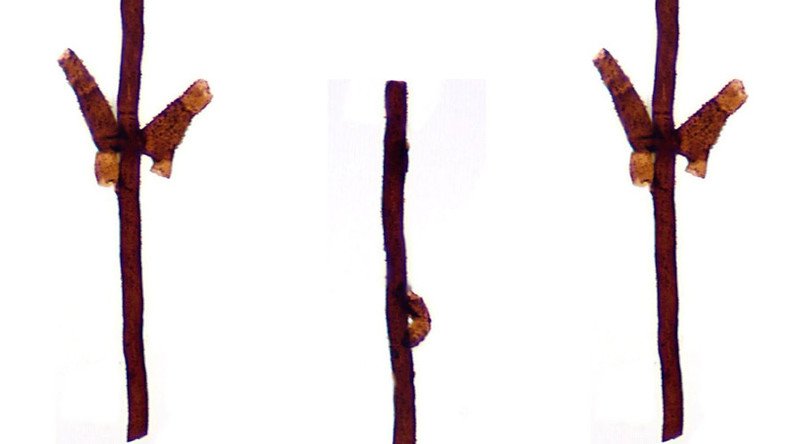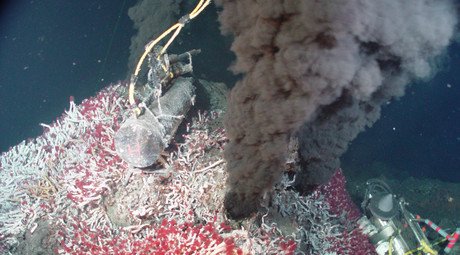Life on Earth began in Scotland… with 440mn year old fungus, scientists discover

University of Cambridge scientists have discovered the origins of land-based life on the Scottish Hebridean Island of Kerrera, in the form of a primitive fungus.
Tortotubus fungus, also found in Gotland, Sweden, is said to be one of the first organisms to make its way from the sea on to land.
The fungus, which is no taller than the width of a human hair, is the oldest land-dwelling organism on fossil record and is likely to have made the transition from the oceans over 440 million years ago.
Crucially for humans, the fungus kick-started the process of rot and soil, a condition pivotal to the evolution of mammals.
A report on the discovery suggests the fungus played an important role in the nitrogen cycle, which enabled a fertile layer of soil to build up.
“Before there could be flowering plants or trees, or the animals that depend on them, the processes of rot and soil formation needed to be established,” said Dr Martin Smith, who wrote a report on the discovery.
“During the period when this organism existed, life was almost entirely restricted to the oceans: nothing more complex than simple mossy and lichen-like plants had yet evolved on the land,” Smith said.
Early fungi, such as Tortotubus, were specialist decomposers that started the process of getting oxygen and nitrogen into the soil. The latest discovery allowed for the cycle of nutrients to establish a conducive environment on land.
“What we see in this fossil is complex fungal ‘behavior’ in some of the earliest terrestrial ecosystems – contributing to soil formation and kick-starting the process of rotting on land,” said Smith.
Tortotubus had cord-like arms allowing it to colonize surfaces on land. Similar fungi occupy the earth today.
The Scottish fungi may also have formed mushrooms, which would have spread across the land.
“This fossil provides a hint that mushroom-forming fungi may have colonized the land before the first animals left the oceans, it fills an important gap in the evolution of life on land,” said Smith.














